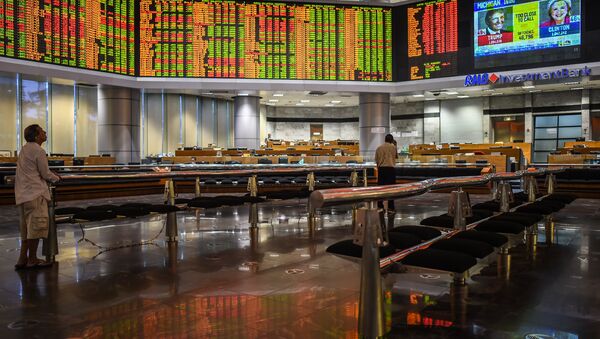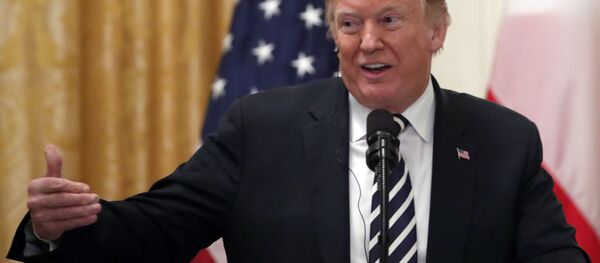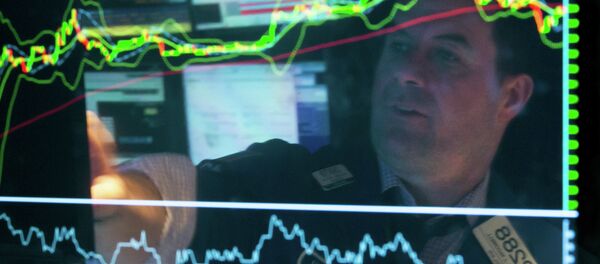Earlier, US President Donald Trump blamed what he called "crazy" Fed policies for contributing to current market turmoil.
Radio Sputnik has discussed the financial market turmoil with political and economic analyst Yannis Koutsomitis.
Sputnik: What are the main reasons behind the US stock market tumbling?
Yannis Koutsomitis: The one explanation is that contributors feel that the market has peaked. There's been a continuous rise of stocks in the past months. My sense is that we've reached the moment when the market feels that there needs to be a correction. As well, there are also concerns about the trade war looming between the US and China.
READ MORE: What Are the Guiding Principles of the "New" Democratic Party?
So, the market needs to correct right now and we've seen this morning also the futures have also been low for the Thursday session of the market. I think that this will last for a few days, although Mr. Trump wouldn't like to see this correction happening because it diminishes the picture of a perfect market before the midterm elections.
Sputnik: We had this amazing bull run that nobody really expected. It was going on for a long time and of course, we were hearing that it can't be going on forever and there will a correction soon. Various analysts were saying different things but what do you think was behind the major bull run that we had?
Sputnik: We've also got Q4 coming up in the US and that's on the back of a lot of new tariffs that are going to be imposed on Chinese goods which make up a nice portion of a lot of retail sales; do you think that we're going to see the impact of that already this Q4?
Yannis Koutsomitis: It will much depend on how China will react from now on because they've almost reached the limit of how much tariffs they can impose on US goods. But if they hit US car parts, that will be a real problem for the US car industry. So, right now it's only for the Chinese government how to react to the US tariffs.
Sputnik: What would happen if they do hit those car parts? How soon would that be apparent? I'm wondering about the midterms and, of course, Q4.
Sputnik: What do you think about Trump's statement about Fed policies? Is he right to say that they are "crazy"?
Yannis Koutsomitis: This is exaggerated. The Fed indicated weeks ago that it will have a neutral policy but it will have to maintain a policy that will not make the US economy overheat. So, I think it was a real political statement from Mr. Trump and maybe he is looking for a scapegoat in case things do not go very well in the midterms. Then the Fed could be a scapegoat for any losses that the GOP might have.
Sputnik: Let's talk about the IMF because we've seen yesterday and the day before two big warnings coming out. I'd like to get your take on those warnings; do you think those are the only warnings we'll be getting from the IMF in the near future or are there any other things that could be serious? We got this warning that we could see another crisis happening, that's kind of a scary thing.
Yannis Koutsomitis: The IMF needs to look in the global picture. Right now the trade disputes are affecting the emerging economies. We've seen trouble in Turkey, we've seen the trouble in Argentina with a new IMF loan; we've seen a new IMF loan being discussed between Pakistan and the IMF. So, emerging economies are in a really delicate situation right now and the IMF is worried that some of these countries might seek more help.
READ MORE: IMF Chief Lagarde Defends Fed's Rate Hikes Slammed by Trump
We should take into account that there are backdoor negotiations between the IMF and the US government for new funding for the next years. So, it's a really delicate situation right now between the IMF, the emerging economies and the US.
Sputnik: Is there anything the IMF can do about this other than just prognosing that there's going to be serious problems with emerging economies?
The views expressed in this article are solely those of Yannis Koutsomitis and do not necessarily reflect the official position of Sputnik.






